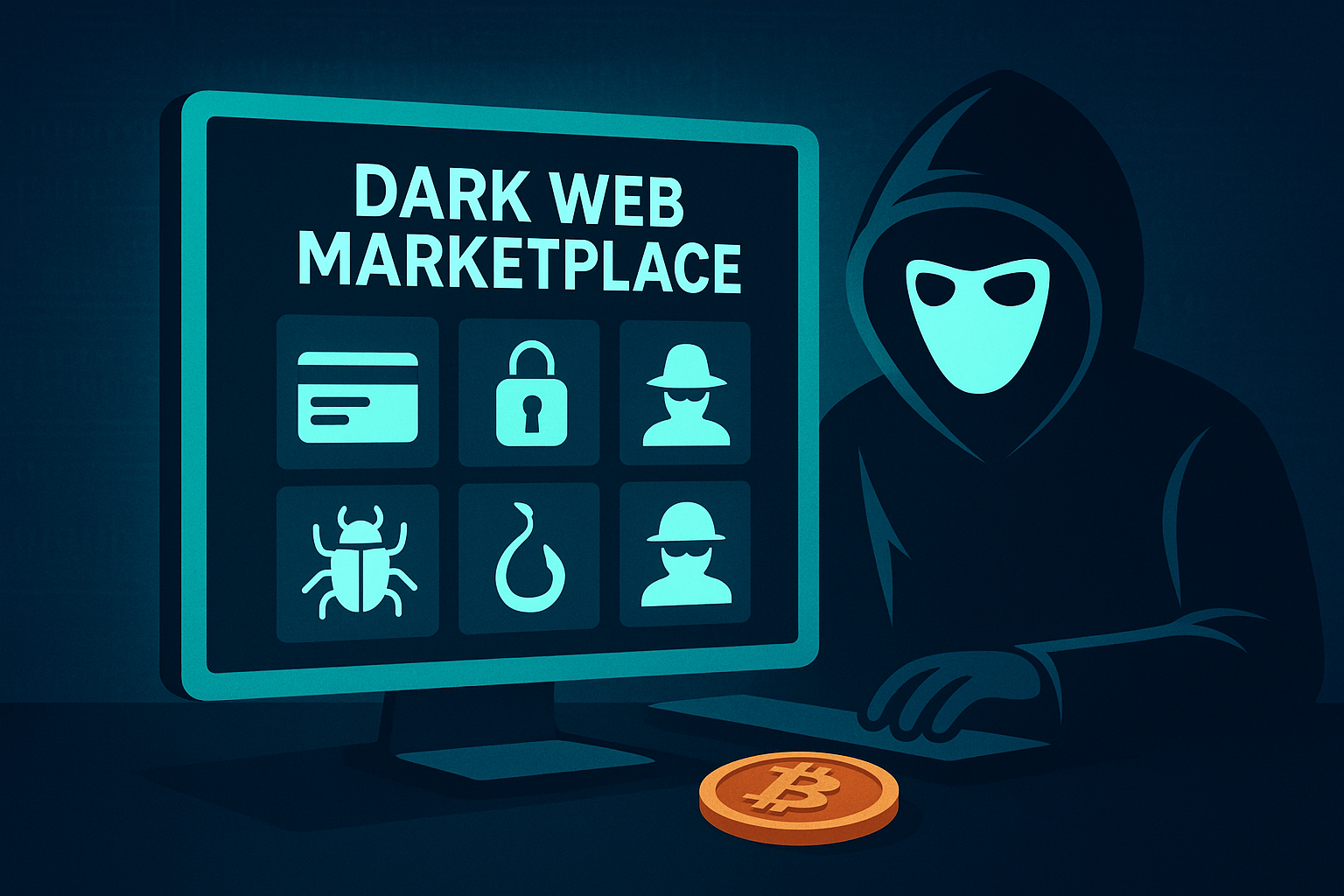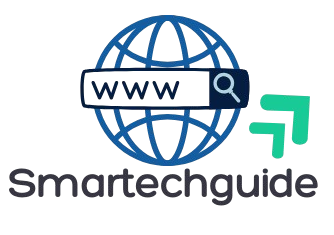
🌐 What Is the Dark Web?
The internet has three main layers:
- Surface Web – What we use daily (Google, YouTube, news sites).
- Deep Web – Content not indexed by search engines (like private databases, online banking).
- Dark Web – A hidden layer of the internet only accessible with special tools like Tor or I2P, and often used to maintain anonymity.
The dark web isn’t entirely illegal—some people use it for privacy in oppressive countries. But it’s also where a large portion of the world’s cybercrime economy thrives.
🕶️ What Are Dark Web Marketplaces?
Imagine Amazon or Flipkart, but instead of mobile phones and books, you find:
- Stolen identities
- Hacked server credentials
- Malware, ransomware kits, phishing templates
- Fake passports, driver’s licenses
- Access to corporate networks
- Bank account logins
- And even “hacker-for-hire” services
These platforms are known as Dark Web Marketplaces.
They function like regular e-commerce websites—with user accounts, shopping carts, seller ratings, product reviews, refund policies, and dispute resolution. But everything is wrapped in anonymity, using:
- Tor network to hide IP addresses
- Cryptocurrencies like Bitcoin and Monero
- Encrypted messaging tools for communication
🛒 What Can You Buy or Sell?
Here are some major categories sold in dark web markets:
🔓 1. Hacked Accounts & Credentials
- Email accounts (Gmail, Yahoo, etc.)
- Social media logins (Facebook, Instagram, LinkedIn)
- Web hosting or cPanel accounts
- Streaming services (Netflix, Spotify)
- Online banking access
🐛 2. Malware & Ransomware Kits
- DIY ransomware (used in RaaS attacks)
- Remote Access Trojans (RATs)
- Keyloggers
- Android and iOS spyware
🎣 3. Phishing-as-a-Service (PhaaS) Kits
- Professionally designed fake login pages
- Email templates that mimic trusted brands
- Phishing delivery systems with dashboards
📦 4. Initial Access to Networks
- Remote Desktop Protocol (RDP) credentials
- VPN and SSH login info
- Sold by Initial Access Brokers (IABs) who hack and sell entry points
🧬 5. Databases & Leaked Information
- Email/password dumps from breached sites
- Government or corporate data leaks
- Voter IDs, Aadhaar numbers (India-specific)
🛠️ 6. Cybercrime Services
- DDoS-for-hire (take down websites)
- Custom malware development
- Exploit kits for known software vulnerabilities
🔍 Famous Dark Web Markets (Then & Now)
| Marketplace | Status | Notable Features |
|---|---|---|
| Silk Road | Shut down (2013) | The first big dark web market, focused on drugs |
| AlphaBay | Shut down (2017) | Largest at its peak; sold hacking tools, stolen data |
| Hydra | Shut down (2022) | Russia-based, focused on Eastern Europe cybercrime |
| Empire Market | Exit scam (2020) | Known for digital forgeries, malware |
| Dark0de Reborn / Incognito Market | Active (as of recent reports) | Modern UI, anonymous services for cybercriminals |
These markets are resilient. Even when taken down, they often reappear with new names or improved security.
🎯 Who Uses These Marketplaces?
👤 Buyers:
- Amateur hackers with no real skills
- Cybercrime syndicates
- State-sponsored attackers
- Fraudsters
- Scammers and identity thieves
💼 Sellers:
- Malware developers
- Phishing tool creators
- Insider threats (employees selling data)
- Initial Access Brokers
- Identity document forgers
💣 Real-World Impacts
Here’s how dark web activity can affect real users:
- Your passwords may already be for sale.
If you’ve ever been in a data breach, someone may be selling your credentials in bulk. - Your hosting or website could be at risk.
If your WordPress admin or cPanel login is weak, it might be listed on a forum. - Your small business data could be sold.
Attackers don’t just target big companies anymore. SMEs are soft targets. - Your identity could be cloned.
With enough stolen data, cybercriminals can open bank accounts or file fake tax returns in your name.
🛡️ How to Stay Protected
| Risk | Prevention |
|---|---|
| Password leaks | Use a password manager; enable 2FA on all accounts |
| Hosting credentials for sale | Change credentials regularly; monitor site access logs |
| Identity theft | Check credit reports; don’t overshare online |
| Data leaks from employees | Use Zero Trust principles; monitor insider access |
| Dark web mentions | Use monitoring tools like HaveIBeenPwned, Dehashed, or security suites with dark web alerts |
🔚 Final Thoughts
The dark web is like an underground mall where cybercrime runs like an organized business. With marketplaces selling malware, stolen data, and hacking services, it’s easy for even non-technical criminals to launch attacks.
But awareness is power.
🔒 The more you know about these marketplaces, the better prepared you are to defend your identity, your website, and your business.
